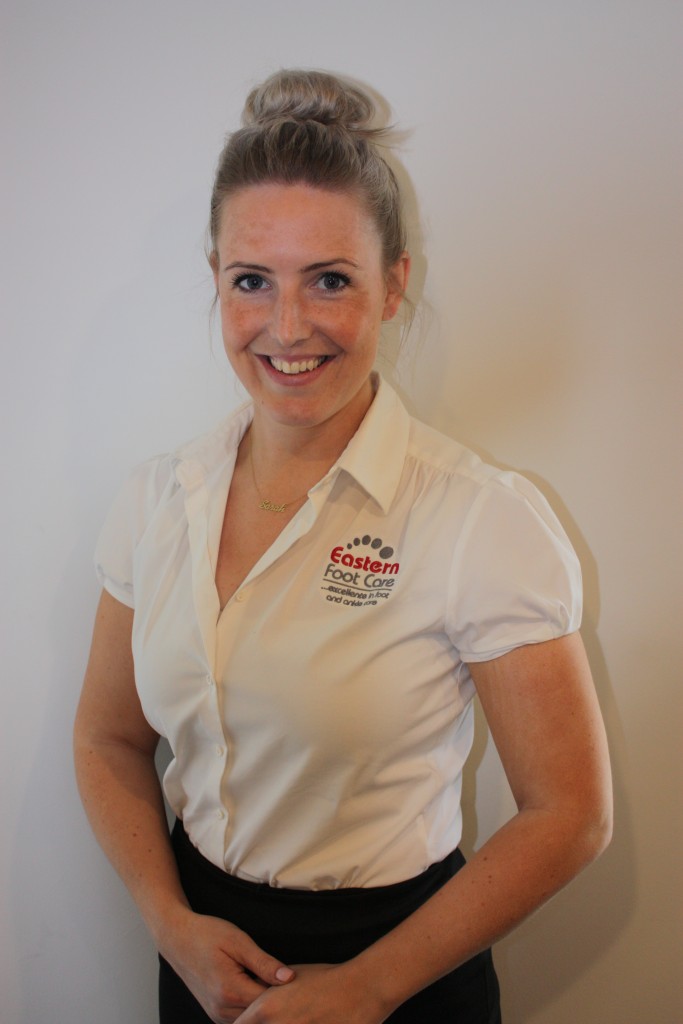Eastern Foot Care Dance Podiatrist Sarah Bowling discusses en Pointe in Ballet for adults
Adult Ballet has become a popular trend in the last few years. It is widely advertised with classes from beginners to advanced levels all over Melbourne. People typically develop an interest as they may have had Ballet lessons as a child, have always wanted to take it up and because ‘barre classes’ have recently developed huge popularity advertising improvement to flexibility and body tone.
In my opinion, you are never too old to begin Ballet. To start with a class that is suited to your ability can be enjoyable, social and great for fitness. However taking Ballet to the next step and getting out the Pointe shoes is a completely different matter.
In youth, there is a common debate as to what age to begin Pointe work because the bones have not finished growing and the feet may not be fully developed. In adults we know that the bone centres are now fully formed but with age brings about other changes in the feet that we need to consider.
In adulthood or with breaks between dance training the tendons and ligaments can lose their elasticity and the stabilisers in the ankle may not be as strong as they need to be. This can cause problems as it is now easier to roll an ankle, reduce balance and put the muscles and ligaments under extreme stress leading to an injury.
At the end of your Pointe shoes is the flat toe box comprised of paper, fabric and glue. It is an essential part of Pointe work to be able to stand up on that flattest part of the toe box while maintaining straight, pulled up legs and knees, turnout and ankle stability.
With reduced strength or flexibility in the feet and ankles your Pointe shoe can actually slip out from underneath you if you don’t step up correctly onto that flattest surface and you’ll end up flat on your back looking at the ceiling. The foot and ankle must conform to a large degree of plantar flexion that is generally not achievable without proper instruction and training. Too many times us as teachers will see students stepping up with bent knees in order to get onto their Pointe shoe which means muscles are not engaged and correct technique is not being followed.
On the other hand, sometimes we come across those adults who are naturally flexible, have a large range of movement, can just touch their toes without any warm up and haven’t danced in years or maybe ever! It is just as important for these dancers with this hypermobility to go back to basics as well. Just because they have the flexibility doesn’t mean that they have the strength to control their movements.
Other factors we want to consider include:
- Body Mass. Generally adults will have a larger body mass than teenage girls dancing. The extra weight will be direct force through the feet which could be damaging.
- Fat Pads under the ball of the feet and heels with age can shrink which gives less cushioning on the bones and joints which we need for jumping and landing.
We would also look at the amount of classes per week and hours intended to be spent en Pointe, general ankle and foot flexibility and strength, natural mobility, previous dance history and foot shape eg. flat foot, high arch, neutral foot type.
In preparation for Pointe teachers will have you spending hours at the barre doing rises, releves, and balance exercises on double and single legs in order to strengthen those intrinsic muscles of the feet. Teachers also often recommend wearing Demi Pointe shoes as well which helps the progression and ‘feel’ for the dancer before going onto Pointe
As with everything all bodies and abilities are different so it will be a case by case discussion with your qualified Dance Podiatrist. It is definitely not impossible as an adult to work your way up to Pointe shoes but getting the appropriate treatment plan, assessment and ‘all clear’ and from a qualified Dance Podiatrist is a good idea for injury prevention and longevity as a dancer.
To make an appointment for a consultation with a Dance Podiatrist contact Eastern Foot Care Knox on (03) 9887 2233, or Eastern Foot Care Ringwood on (03) 9870 1301.
